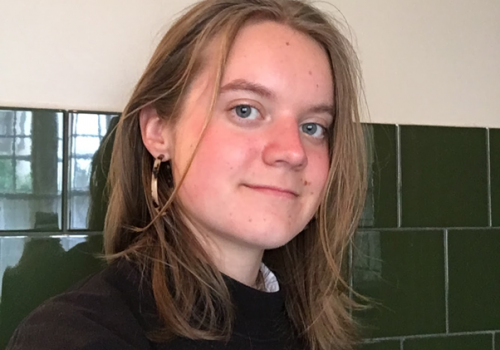
Hey, I’m Magdalena! I study Physics at St Catherine’s College, Oxford. I chose Physics because it’s the perfect harmony between mathematical understanding and physical intuition.
For first-years, the course is for developing a strong understanding of the essentials, which is why you spend (at least) half of your time on maths. You typically have about nine lectures a week, starting from 9:00, which form the groundwork for problem sheets, which take up the bulk of your time. I think the biggest jump I had to get used to was spending a lot more time on work, since each problem sheet might take 6 hours. You also have two tutorials a week, one physics and one maths, in which you’ll go over problem sheets. Held in small groups (usually pairs), these are super helpful for solidifying your understanding of the content and correcting any misconceptions you might have.
I often find the toughest day of the week to be lab day, since you’re working nearly non-stop from 10.00 to 17.00. Plus, you’re often exploring concepts in physics that you haven’t met yet in your lectures. Familiarise yourself with the practical beforehand, have a clear idea of what the aim of the experiment is, and everything will go smoothly – well, except when it doesn’t. Then you get to write about it in a formal lab report.
Another part of the practical component is programming skills. We have a couple of lectures on using Python and MATLAB, as well as access to super helpful online resources, but the main way you’ll learn is by doing. Though not essential, I’d recommend building some familiarity with these languages ahead of time, if only even because coding is a useful life skill.
The preparation I did for the PAT (Physics Admissions Test) and the interviews were pretty similar. The kind of problems that come up are fairly different from A-level questions, so I strongly recommend doing lots of extension problems to get used to this.
Initially, I was very stressed about the interviews; the pressure of them only being 20 minutes meant I didn’t have time to pause and contemplate. But once I got started, focusing only on the problem in front of me, I found it wasn’t that bad. Meditating, stretching, or even just listening to a good song, can all be super helpful in calming your nerves and getting in the zone.
The best piece of advice I can give regarding interviews is to think out loud. It’s the only way that the interviewers can know what’s going on in your head, which is what they’re there to find out. They want to see how you approach a problem, demonstrating both physical and mathematical understanding. By explaining to them what you’re trying to do, that can help them in giving you hints that will be relevant. Plus, it helps in getting over any mental block you might have.
One thing to keep in mind is that Oxbridge admissions aren’t about finding the people who are already fully-formed physicists, but those with the potential to be.
Doing Physics at Oxford can often be rough, but that makes it all the more fulfilling, since you’re going at (what feels like) 50 times the speed of secondary school.
